Naji
Life and hope
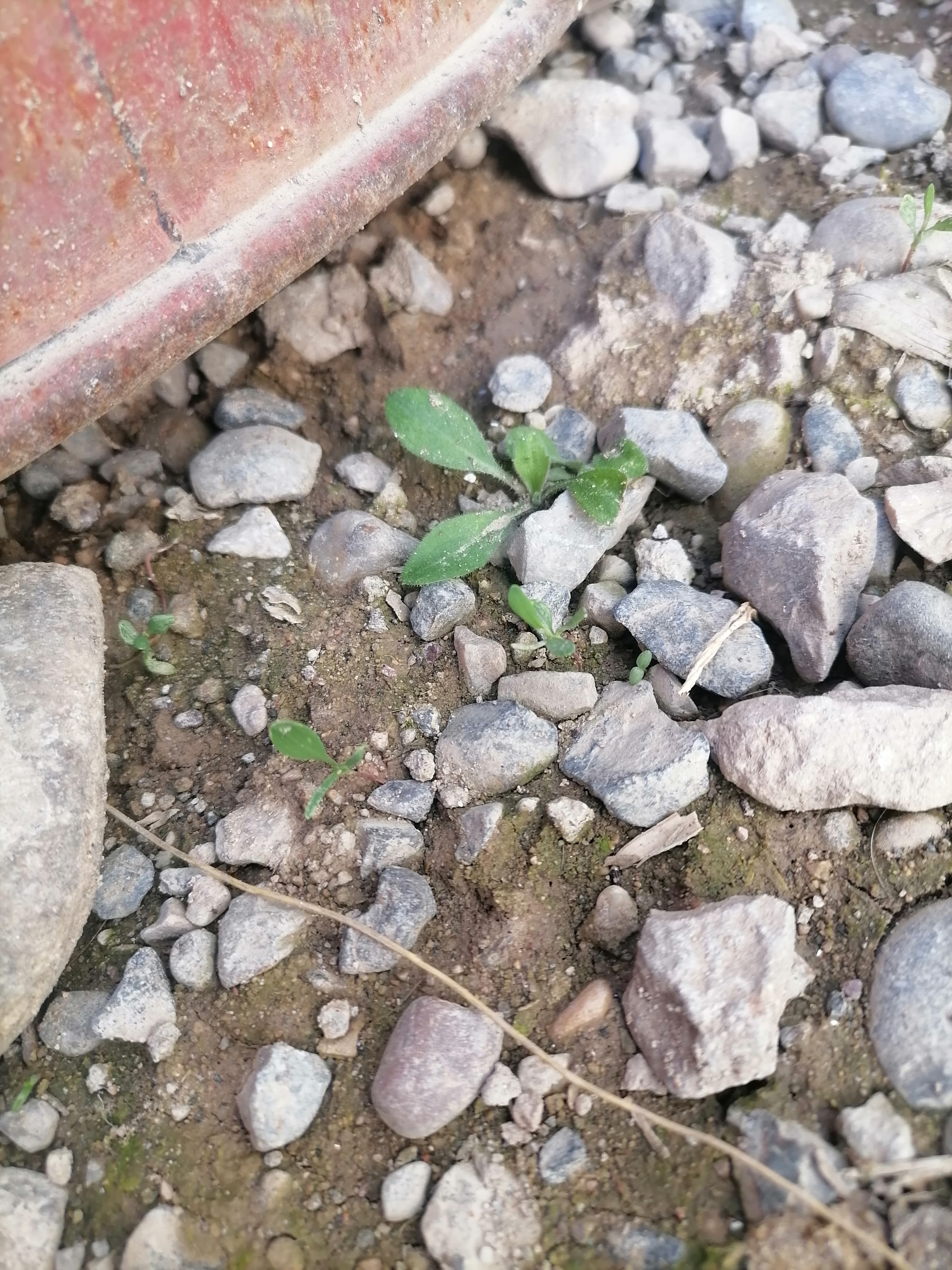
My name is Naji, I am a medical science lab graduate, currently volunteering for a local research centre while searching for a job. I was born in Dugure in Northern Sinjar, and currently living in a tent in Khanke Camp near Duhok.
This is my story, a story of uncertainty, hardship and an unknown future. I have embraced visualising my story through maps, drawings and through speaking and writing about it. Drawing can make a story visual and expressive where people can see and understand what the Yazidi people have lost, not just a place or a piece of land, or a home. In fact, it's not about material things, but the feeling of our souls left behind along with our simple and peaceful life.
Journey into bare life
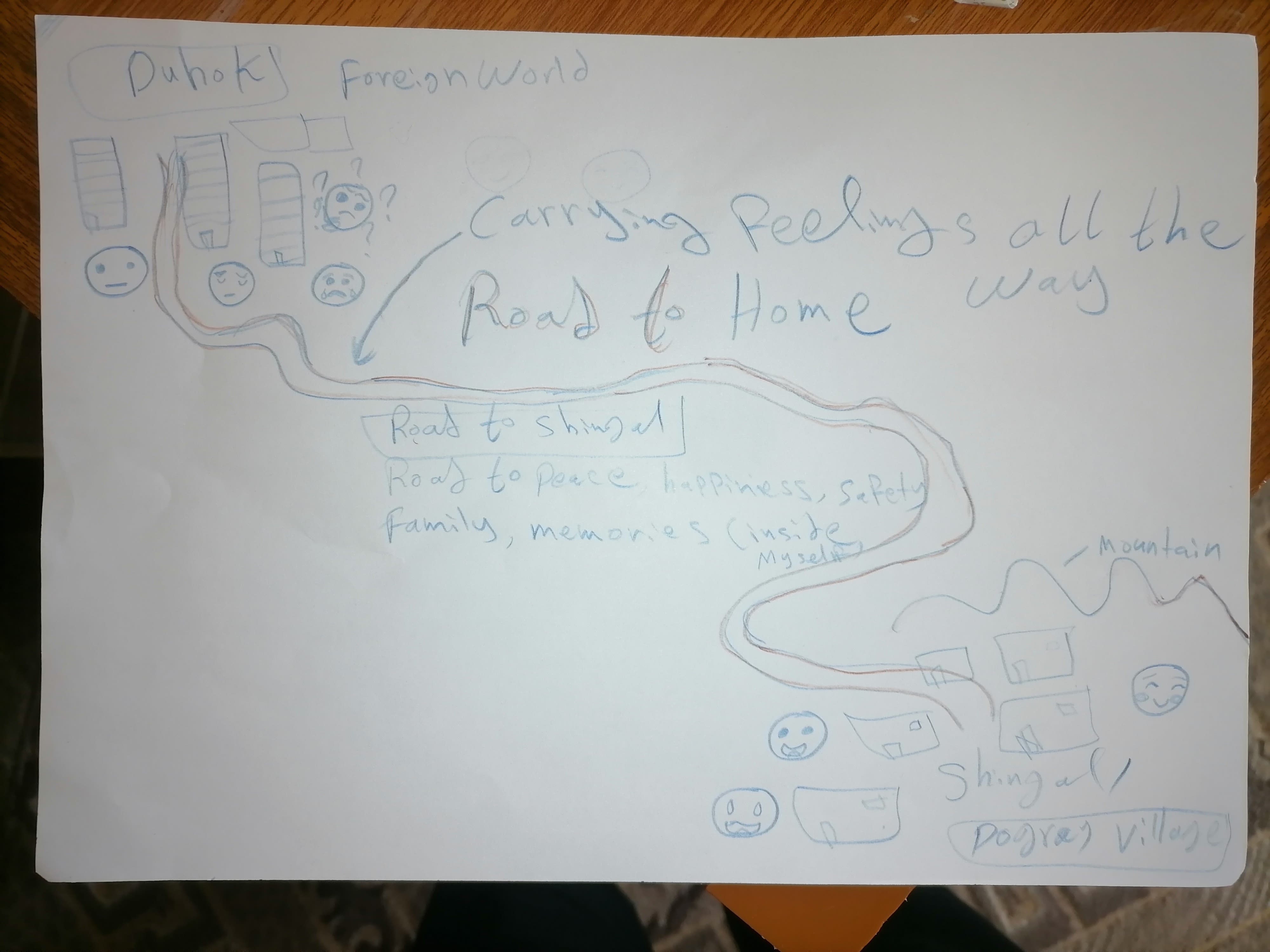
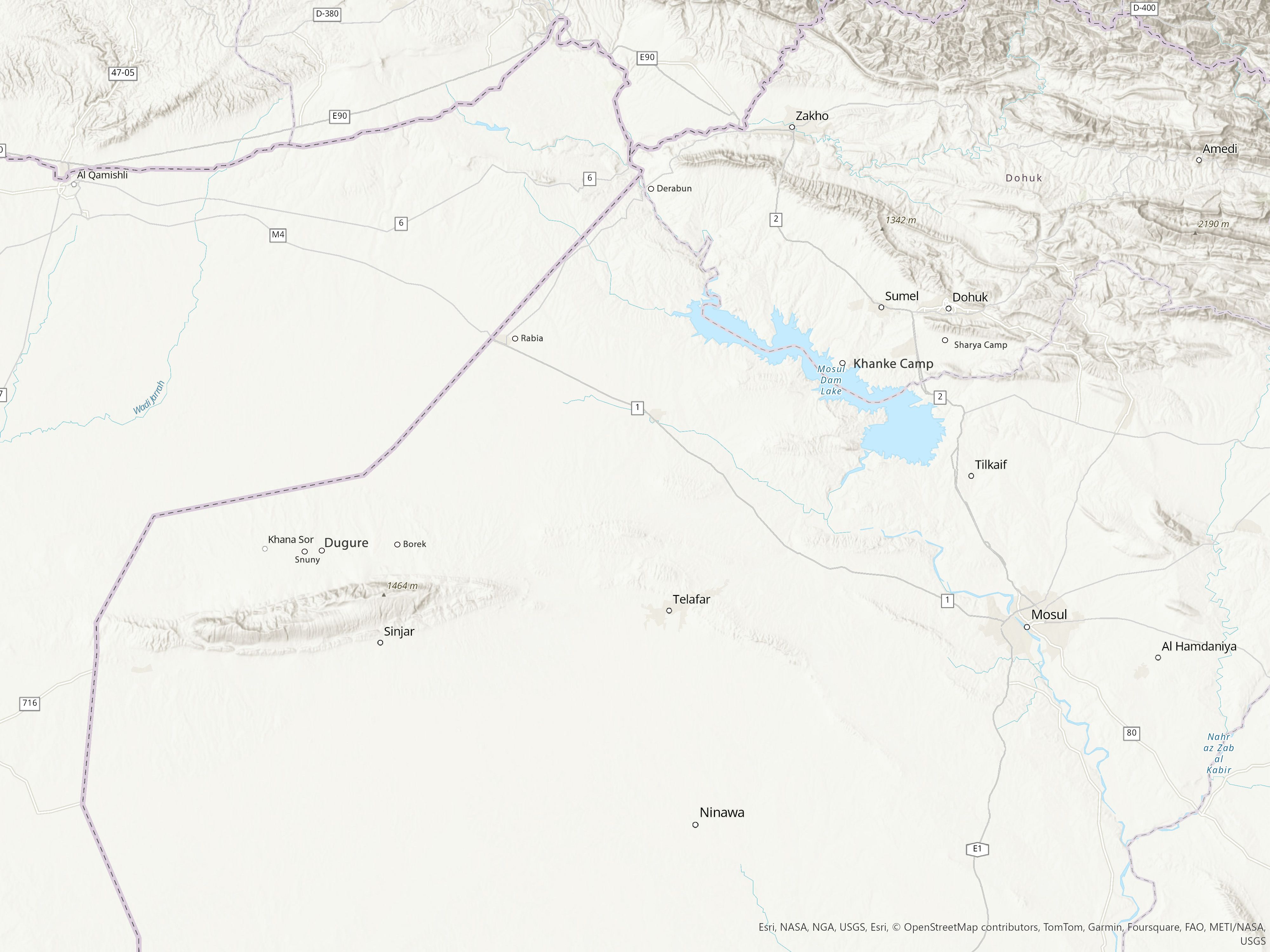

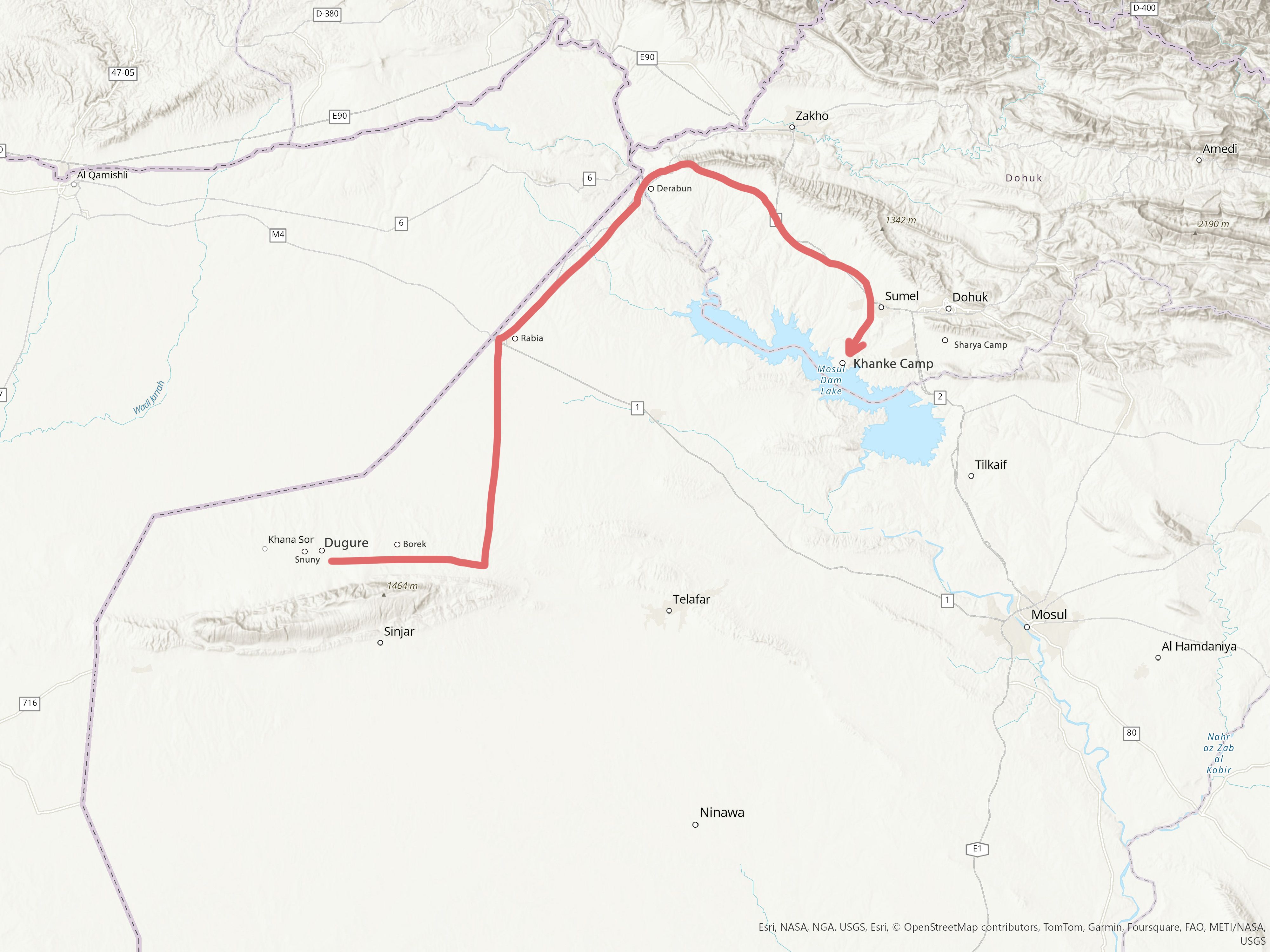
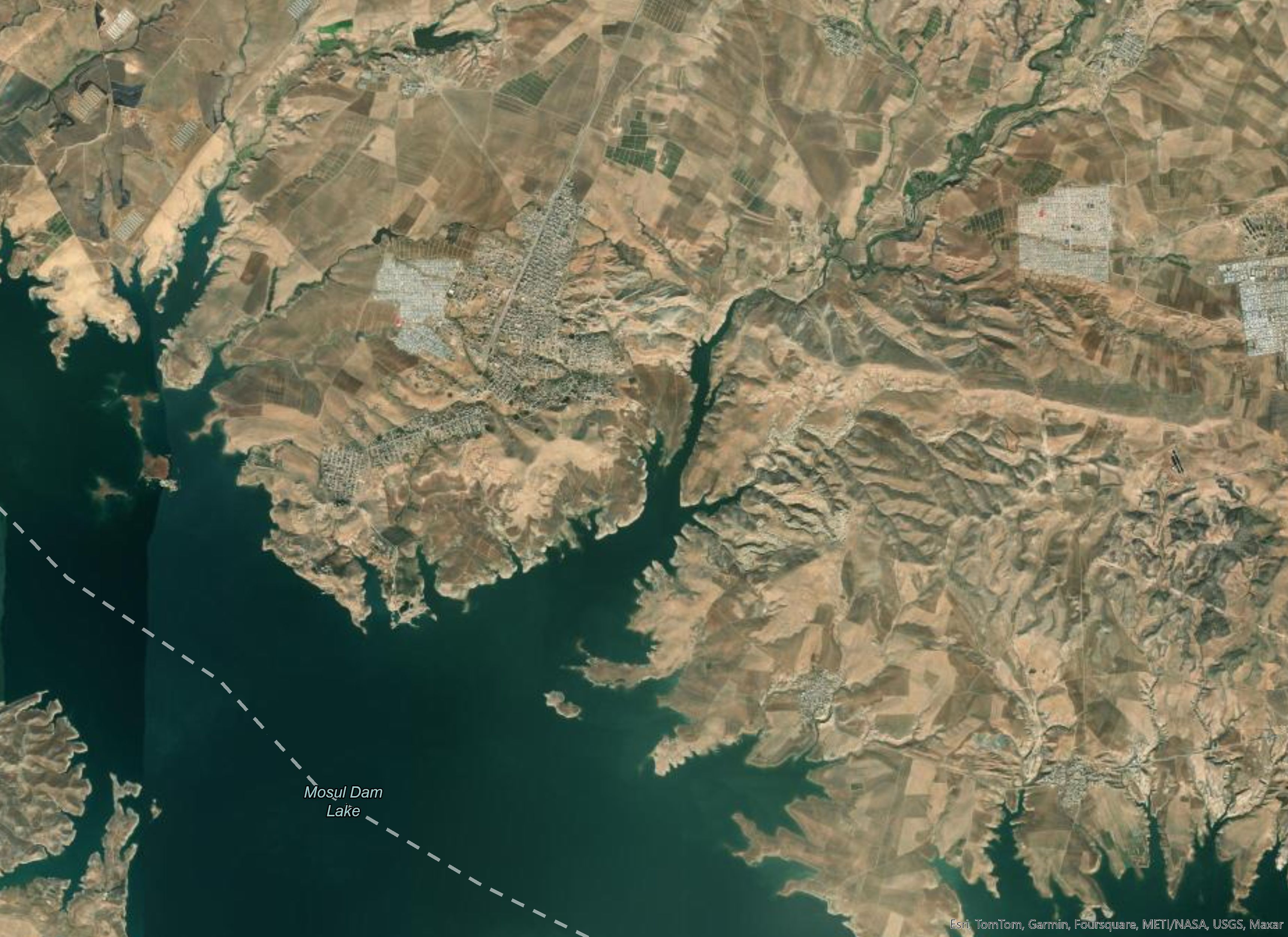
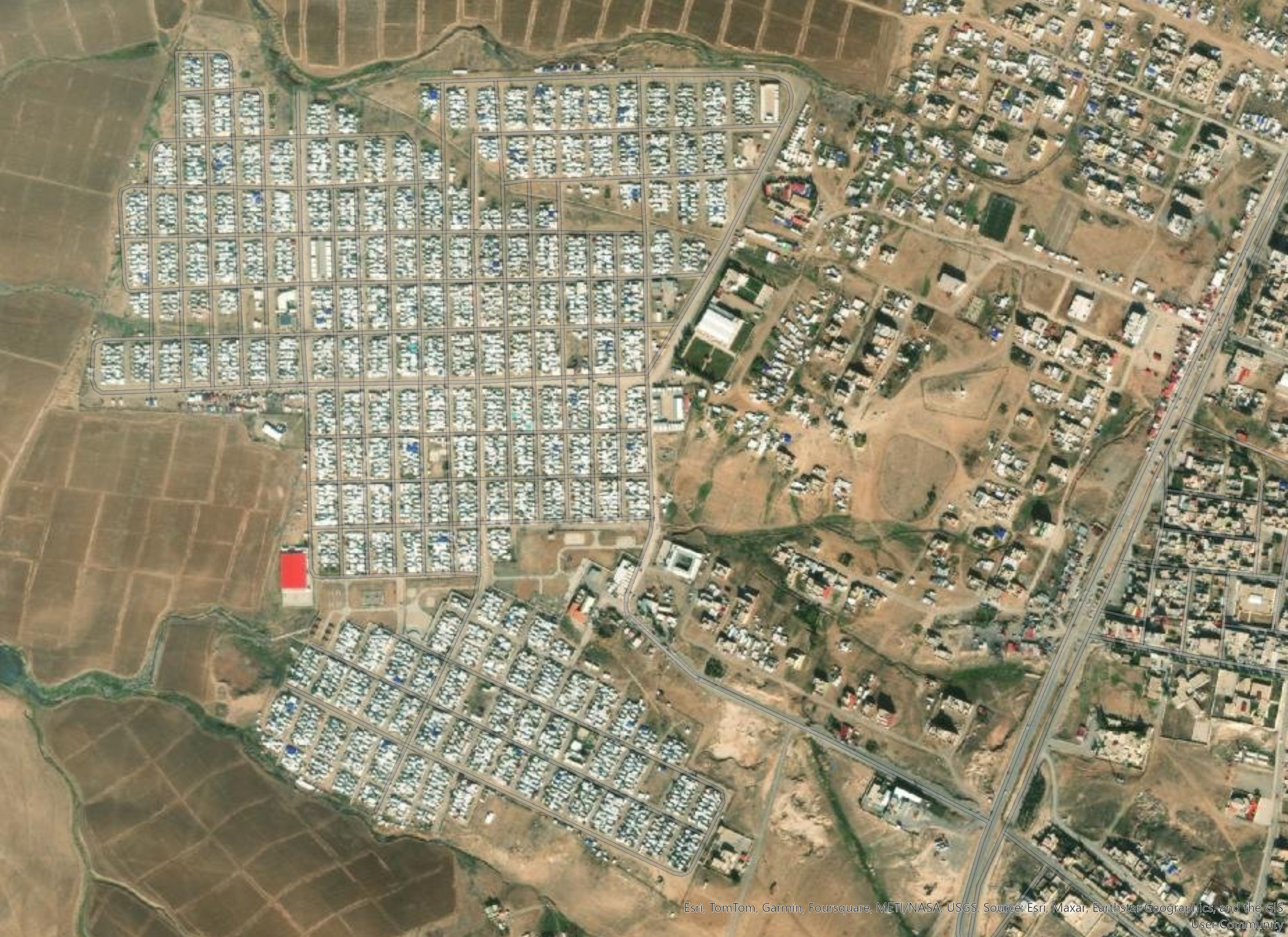
Khanke Camp
I have been living in Khanke Camp since 2014. It has been 10 years since we escaped our home in Dugure, since the ISIS attack.
I live with my family in two tents, we are seven people. We have two rooms and one very small kitchen.
The camp I have been surviving in for the past ten years is like the hell I was told about in my childhood stories. They used to describe hell as a place filled with brutality and heinous torture of who ever eventually ends up in this place as a punishment for their evil deeds. But, we are here in this place not because we did bad deeds, but because we refused to give up our identity, religion, culture and belief.
This tent is made of polyamide (nylon) designed for temporary sheltering, only this one is a ten years old tent. It does not provide any kind of protection from the elements. In winter, it feels like a drum is playing over your head, and when it rains it sounds like bullets. In spring and early summer, the windy and dusty weather causes you to feel breathless and choking because the walls and doors have become torn with holes and openings. In summer, it feels like a boiling pot and the temperature rises unbearably. In fall, another wave of windy and dusty weather hits us.
This cycle has been repeating itself for ten years. This sense of loss and unidentified state of bare life has become our limbo representation of life, and the uncertain and unknown future.
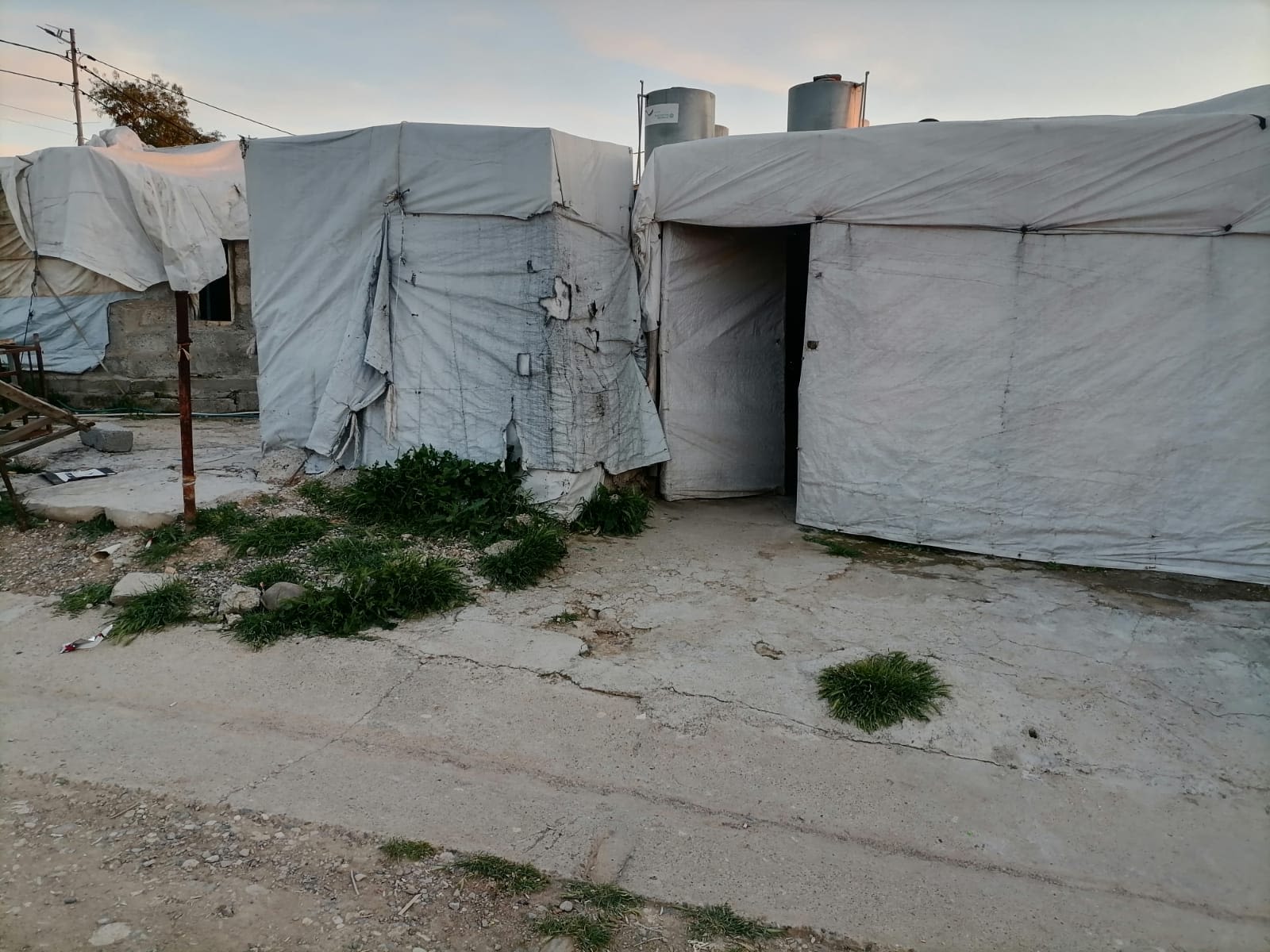
Khanke Camp
Khanke Camp
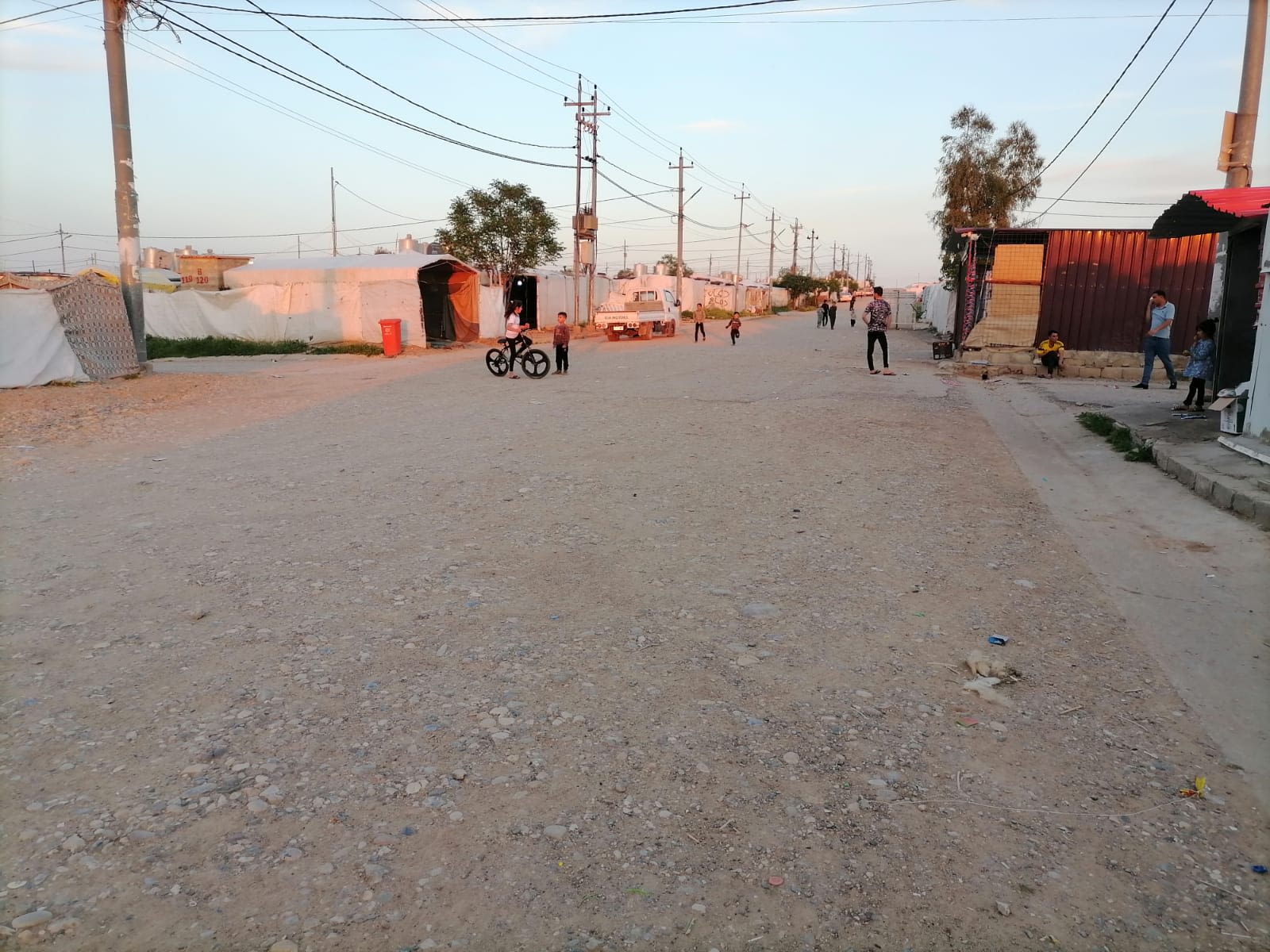
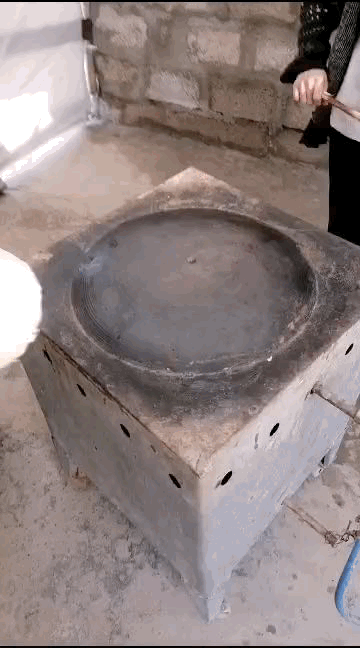
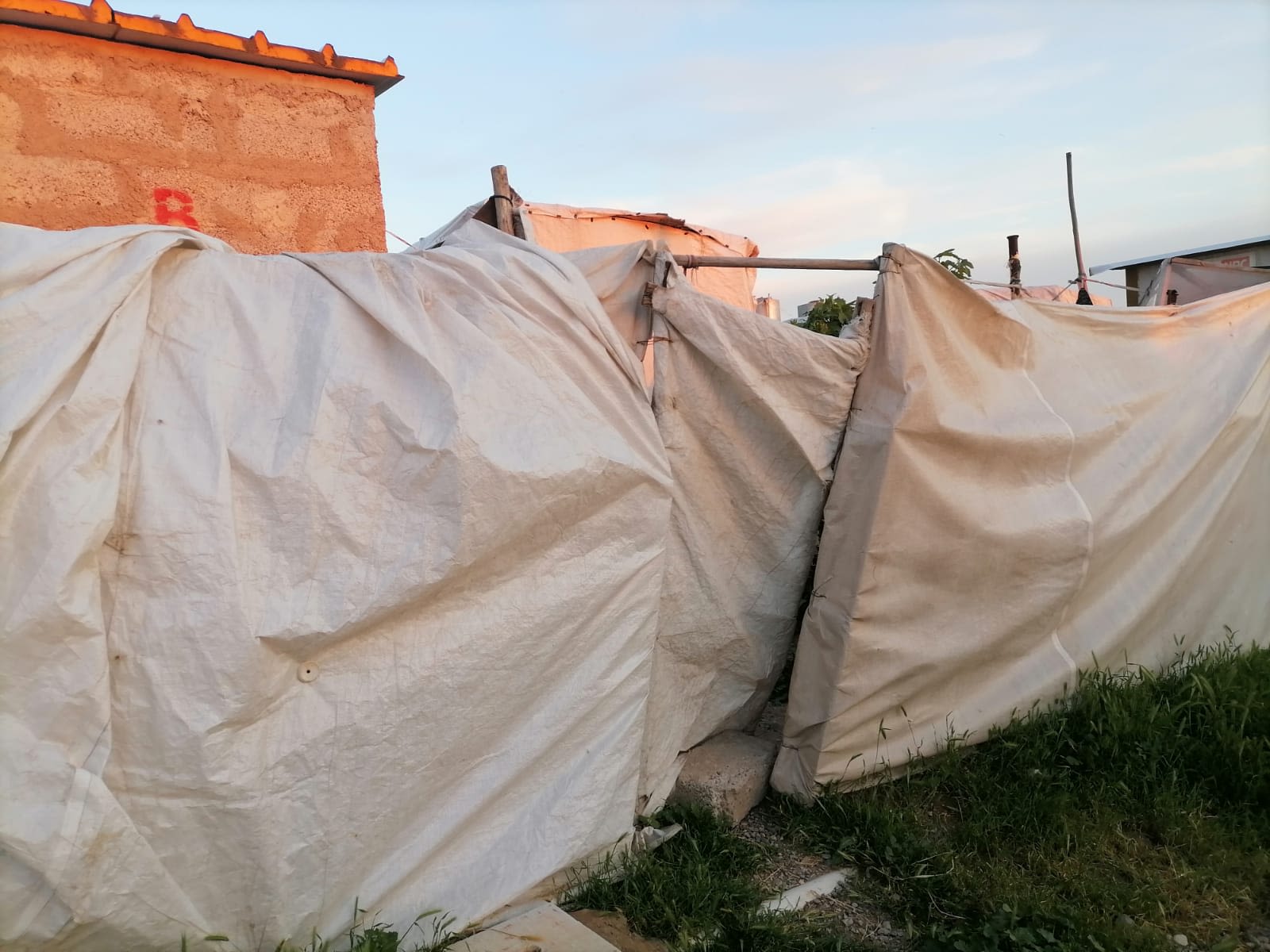
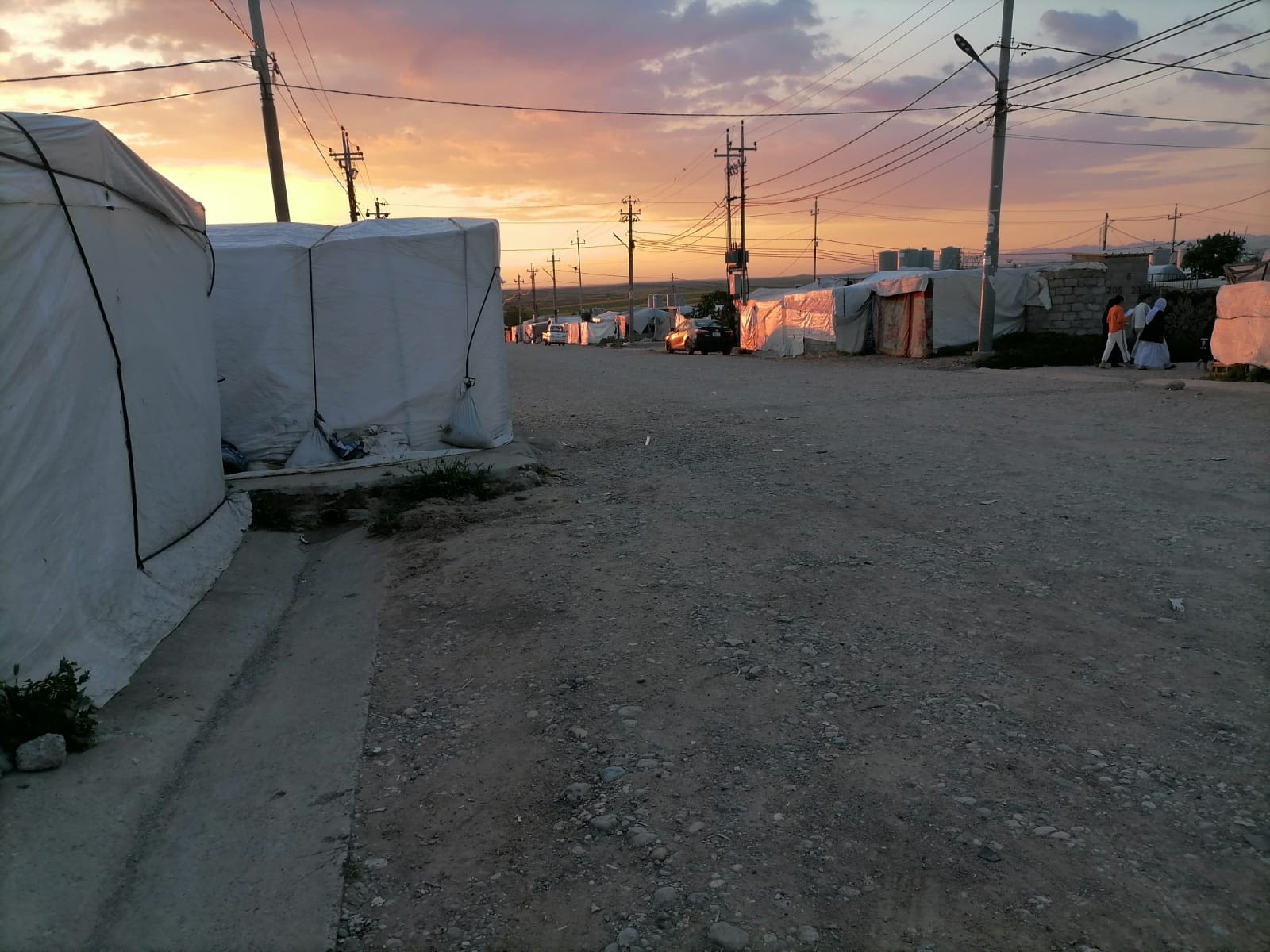
Our whole village escaped together. Everyone was looking for a place to find a shelter, so as not to live in the bare land. Most people and our relatives when they fled Sinjar, they came here to Dohuk and Zakho and just took shelter anywhere and then later authorities made camps and people moved into tents like the ones we are in which we later connected the two together.
We have just a small area to live in, it's all about 100 m² of everything in one place, there are two sitting rooms, a bedroom, and a kitchen where we cook, eat and do everything in that space. All tents are designed the same way.
We also have a small backyard. It's all fenced by nylon (tarpaulin). It's not made for permanent living. Everything feels temporary made quickly for temporary time and use not built for comfort nor for a relaxed life.
It was supposed to be temporary but it has been permanent so far yet we remain hopeful, not for too much longer. There is some news about making rehabilitation plans for people to return to Sinjar. I don't know, maybe some money too, to encourage people to return. Hopefully soon people will return home, but not in the form that Shingal is in now (referring to the lack of rebuilding and infrastructure and resources). If the situation remains the same, then people might prefer to stay here in the camp in temporary shelter and not to live in an insecure and not peaceful environment.
I don't feel this place is home. Although the people of Duhok have been good to us but still no one or place can give the feeling of home like Shingal.
About the future, to be honest, I don't have much hope, but at the same time I am not being hopeless at all. I can't explain it, I wish it will be as simple as it was before, where there was peace, simplicity and security back in my home. But considering the situation over there, and if it (the situation of the Yazidi community as a whole) remains the same then I would personally prefer to leave Iraq. If the discrimination and the oppression of our culture and our religion remain the same then it is difficult to feel optimistic and to have hope about life in Shingal. Personally I would still rather leave this environment which I know will be challenging still, but one will figure it out and take time to adapt to the new environment wherever that might be.
Of course the older generation are still very much connected to the land (Shingal). This is logical, they are still connected to their past, to their hometown, their country, their environment. They talk about the past all the time. They spent more than half of their lives in that land, but at the same time they are not as hopeful or optimistic as before.
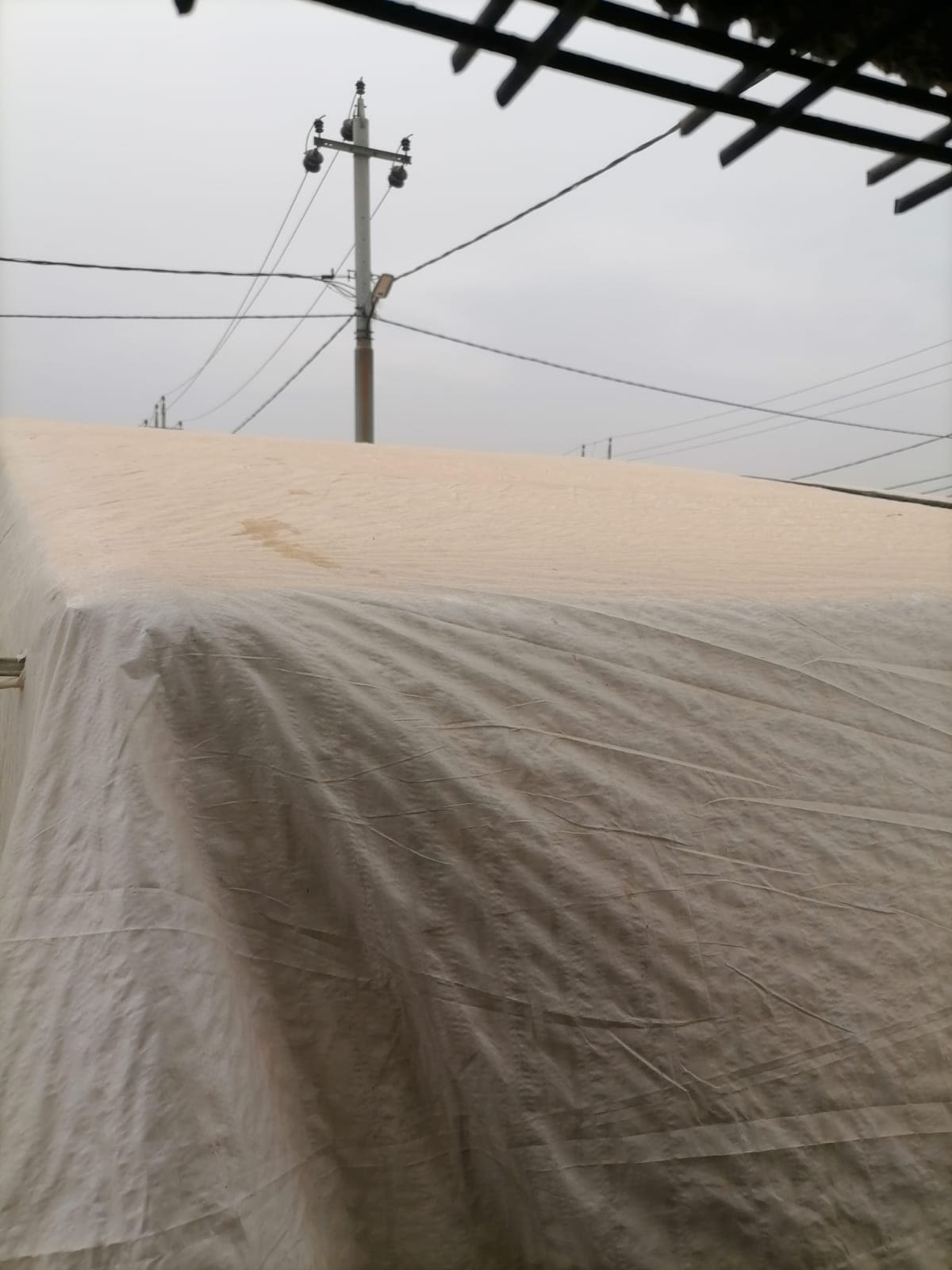
Visits back
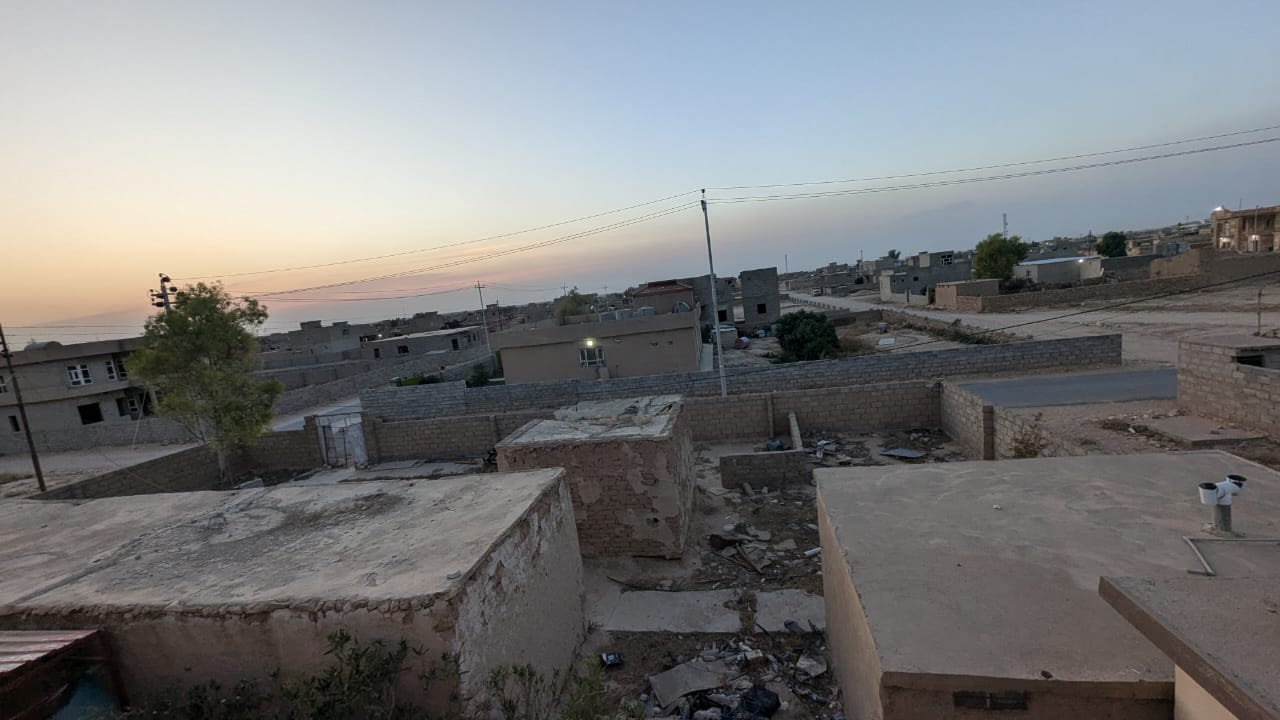
I don't go that often back to my hometown. Since it has been safe to travel, I have managed once or twice a year only. But, this time mattered the most. About a month ago (April 2024), I took a trip back to Shingal, which is about two hours away from the camp by car, it felt way too long as I held so many contradicting feelings of sorrow mixed with wonderful scenery of the side of the road along the way.
When I left the camp, heading towards Dugure, all the joy and excitement about returning and seeing home turned into feelings of pessimism, disappointment and hopelessness. I am heading off to a place which used to hold a simple life filled with safety, security, joy, and a lot of good memories, yet what I saw when I got there of the state of my hometown felt like a battleground that was still too raw to come to terms with.
I was not shocked at the amount of damage, and destruction of the building and roads but I was indeed surprised by the number of different troops and military groups taking positions within the village and outside on the main roads in addition to the large number of checkpoints and security controls.
This is my house, it was very simple. But we lived happily in it. It was just two rooms and a kitchen again like the tent but totally felt different, generous and safe to live in, not like the tent we live in now, with all the noise when it's windy and it rains and you don't feel secure as it might catch fire in seconds.
In 2014, when ISIS were still in the area, our house was between two fighting points. The house behind us was my uncle's house, it was a two floor house, and they were fighting in the second floor with my other neighbours on the other side.
There are a lot of bullet holes in the doors, and in the walls, where there has been a lot of shooting. It is such a difficult thing to see, where it was a simple place to live in and now it is scarred with a lot of fighting.
I was a child, didn't know much about life apart from going to school, playing outdoors, we used to play football and other sports but when we returned home, you feel it is home. It was simple, we didn't worry about the rain and the wind like we are experiencing now in the camp. It was basic, just enough space, me and my siblings lived in one room. We had the other room for my parents and the other room was the spacious kitchen to sit and eat and cook comfortably.
We had an outdoor area for gardening. We had room to play inside the house and in the corner of the property, we had a vegetable patch and a low fenced area were we had our sheep which we raised for milk. We grew parsley, celery, tomatoes and okra in the vegetable patch and made okra stew (merget bamia). All of this made our life, simple, enjoyable and peaceful.
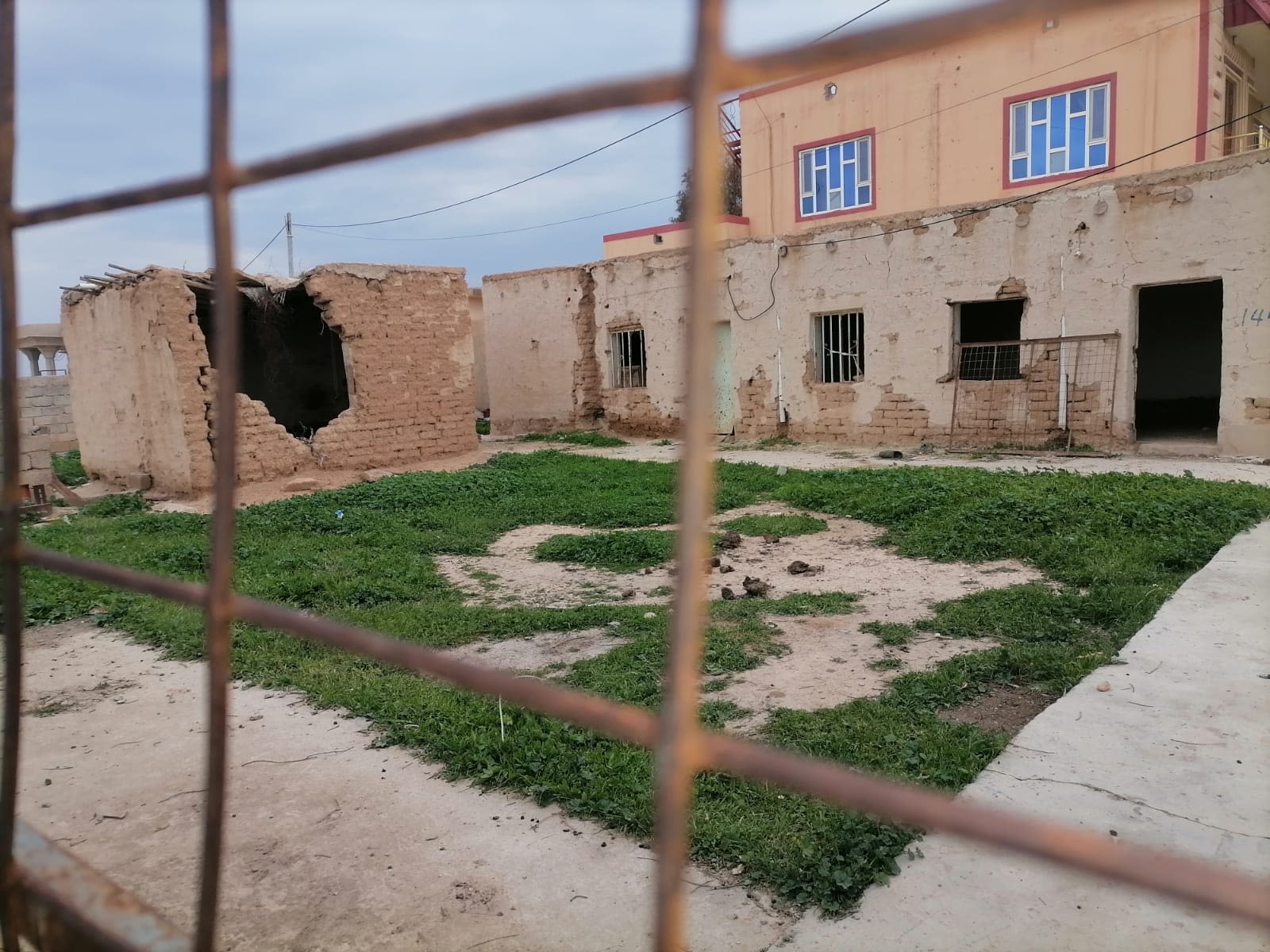
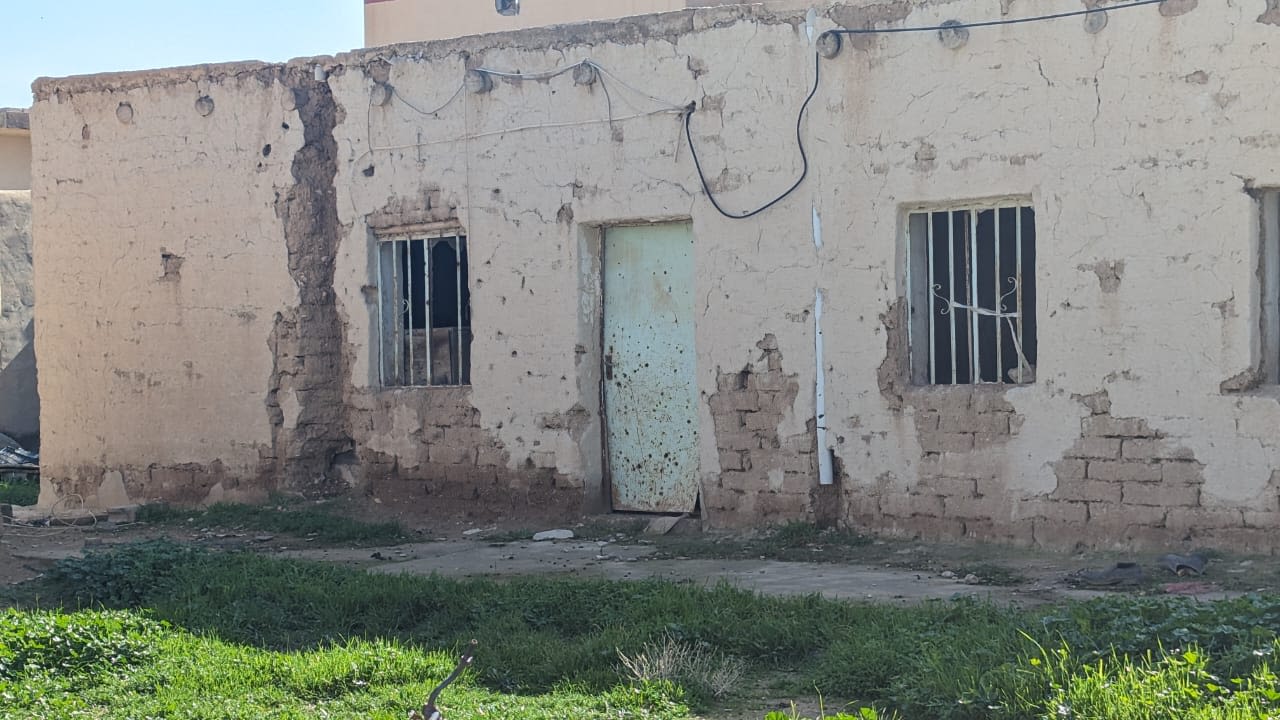
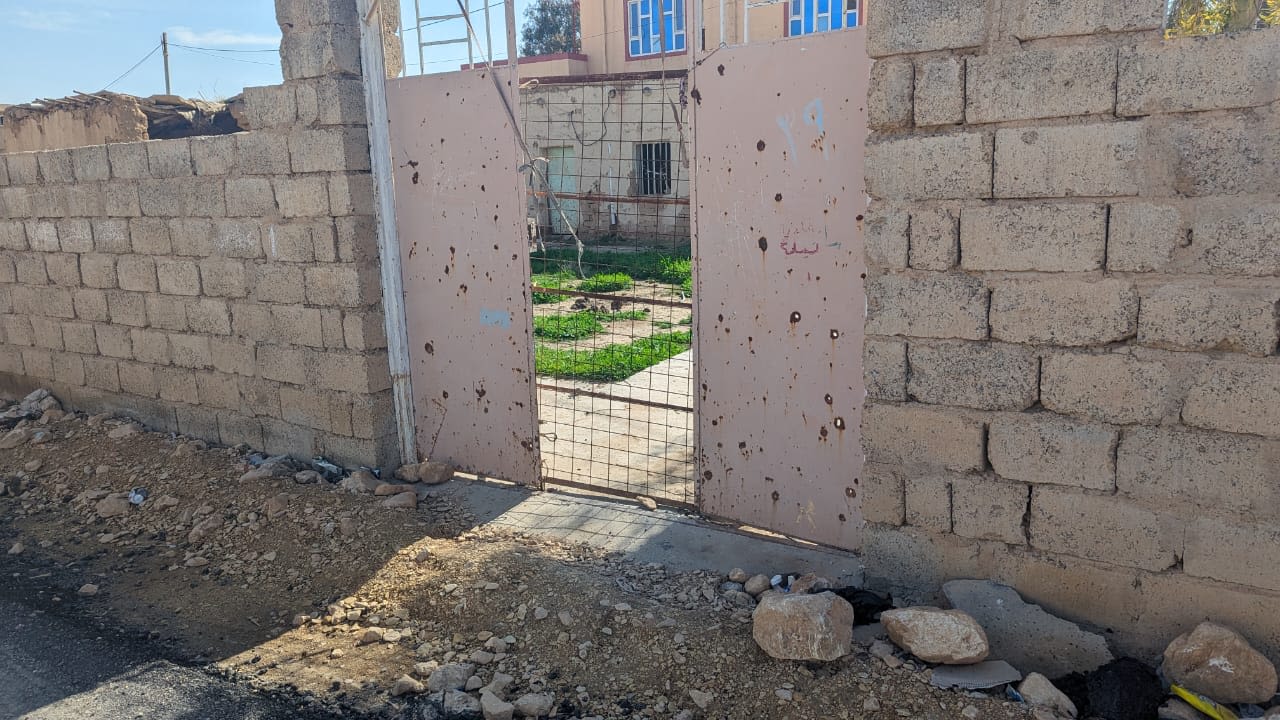
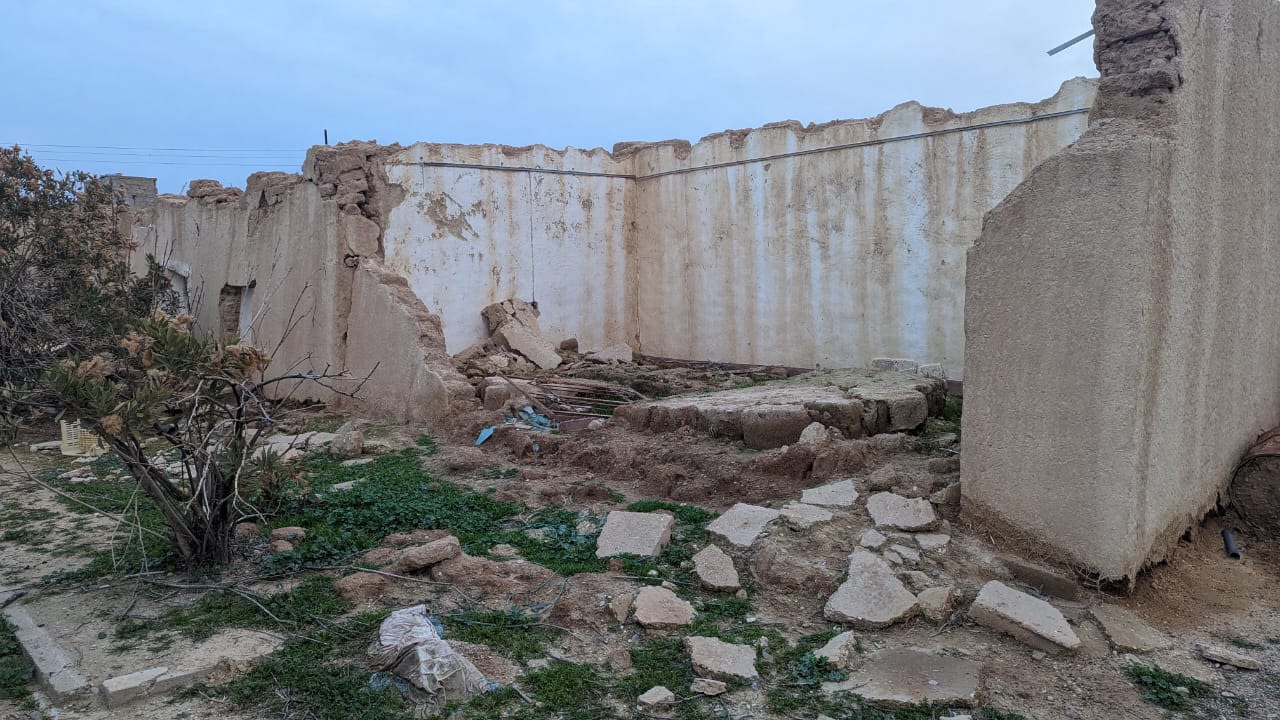
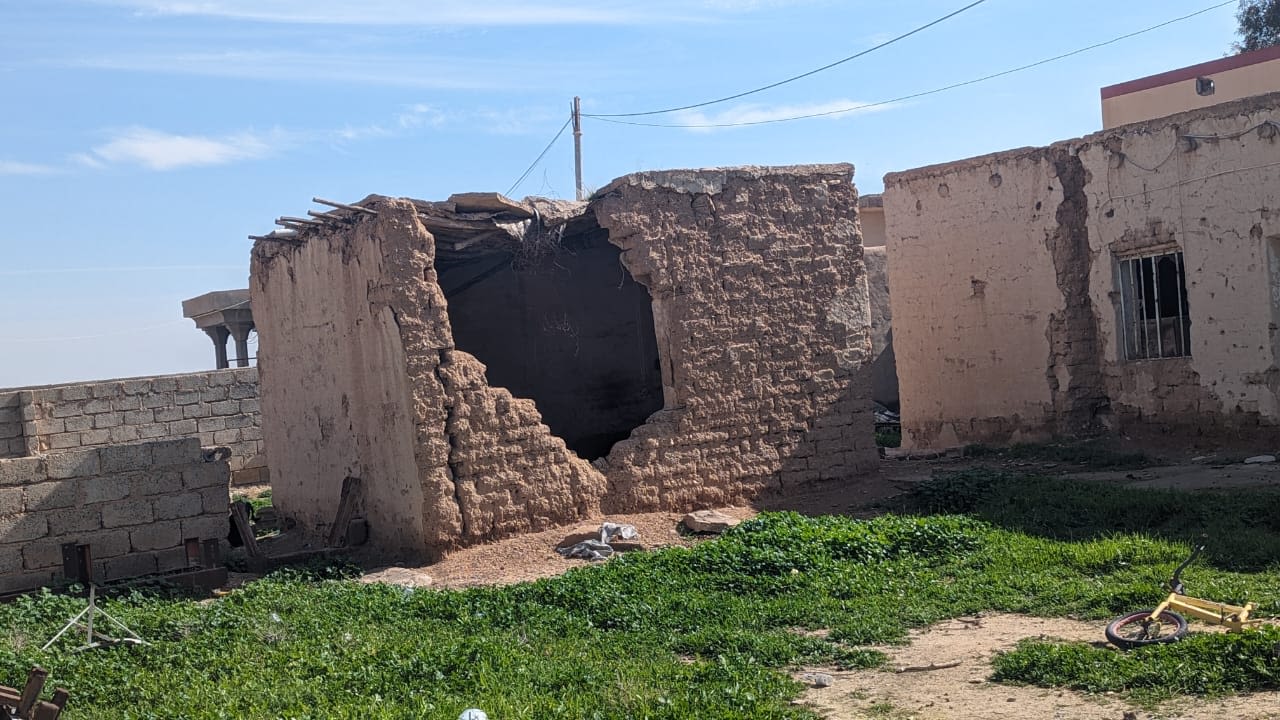
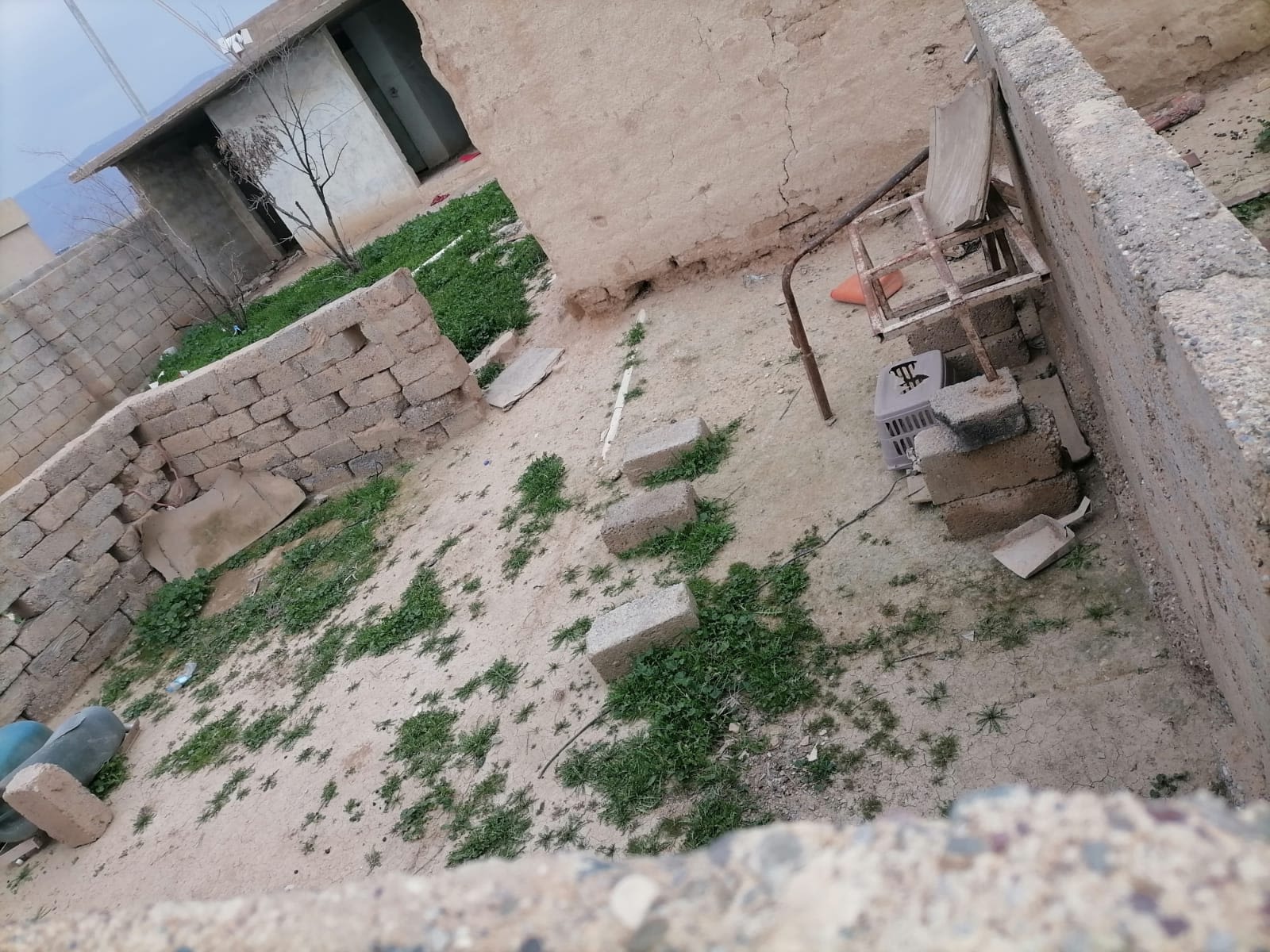
Life is hope
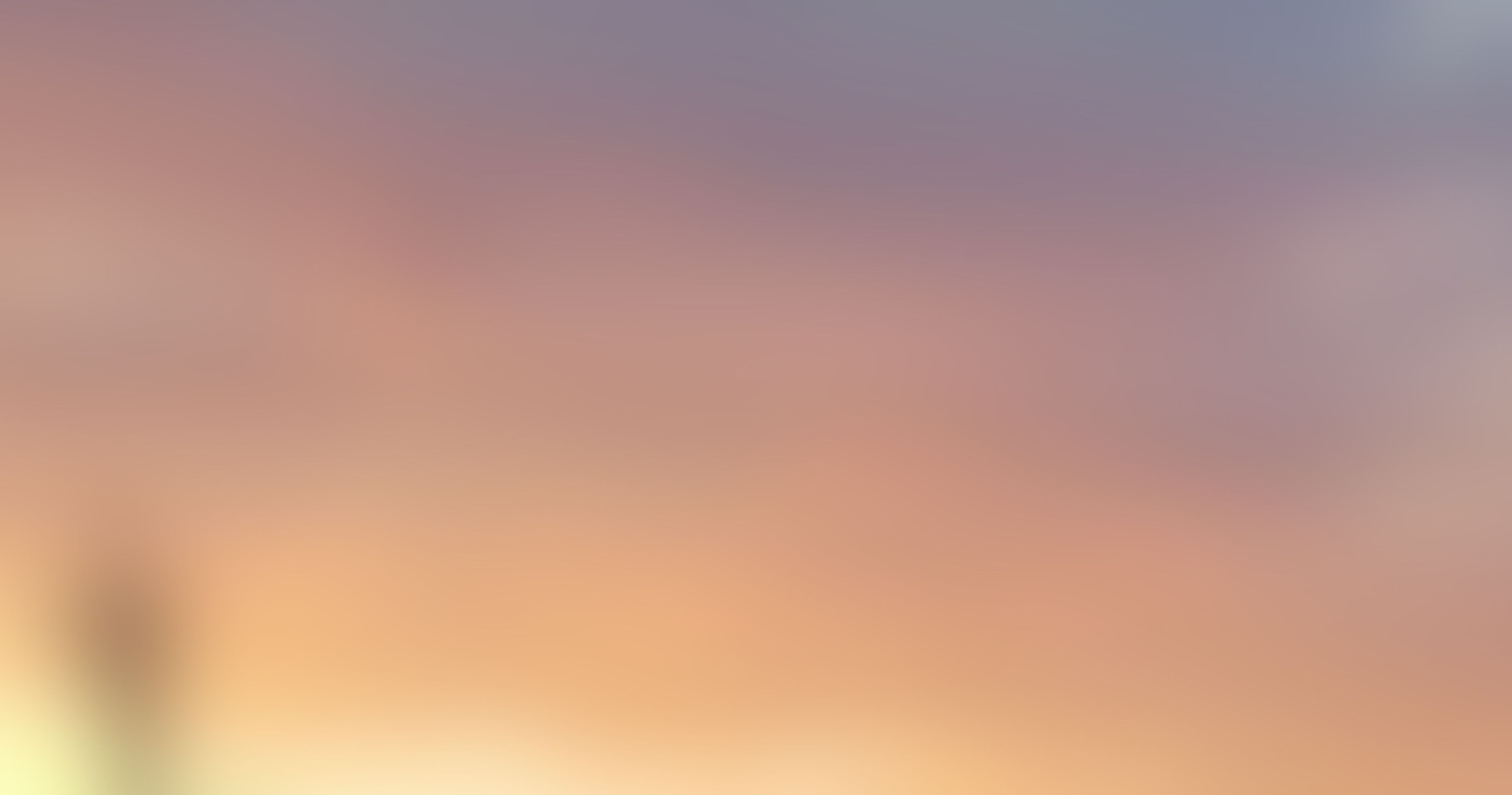
Being able to grow things is so important to us. This is the planting that my mother has done by the tent in the camp. She can't live without planting. We have a very small backyard in the camp. It feels good to plant and have your green veg grown close by and whenever you need food you can pick and eat.
The idea of life growing in the camp is deeply connected to life starting again in Shingal.
Seeing plants growing between rocks and hard soil symbolises that whenever there is life there is hope, and we are not hopeless at all.
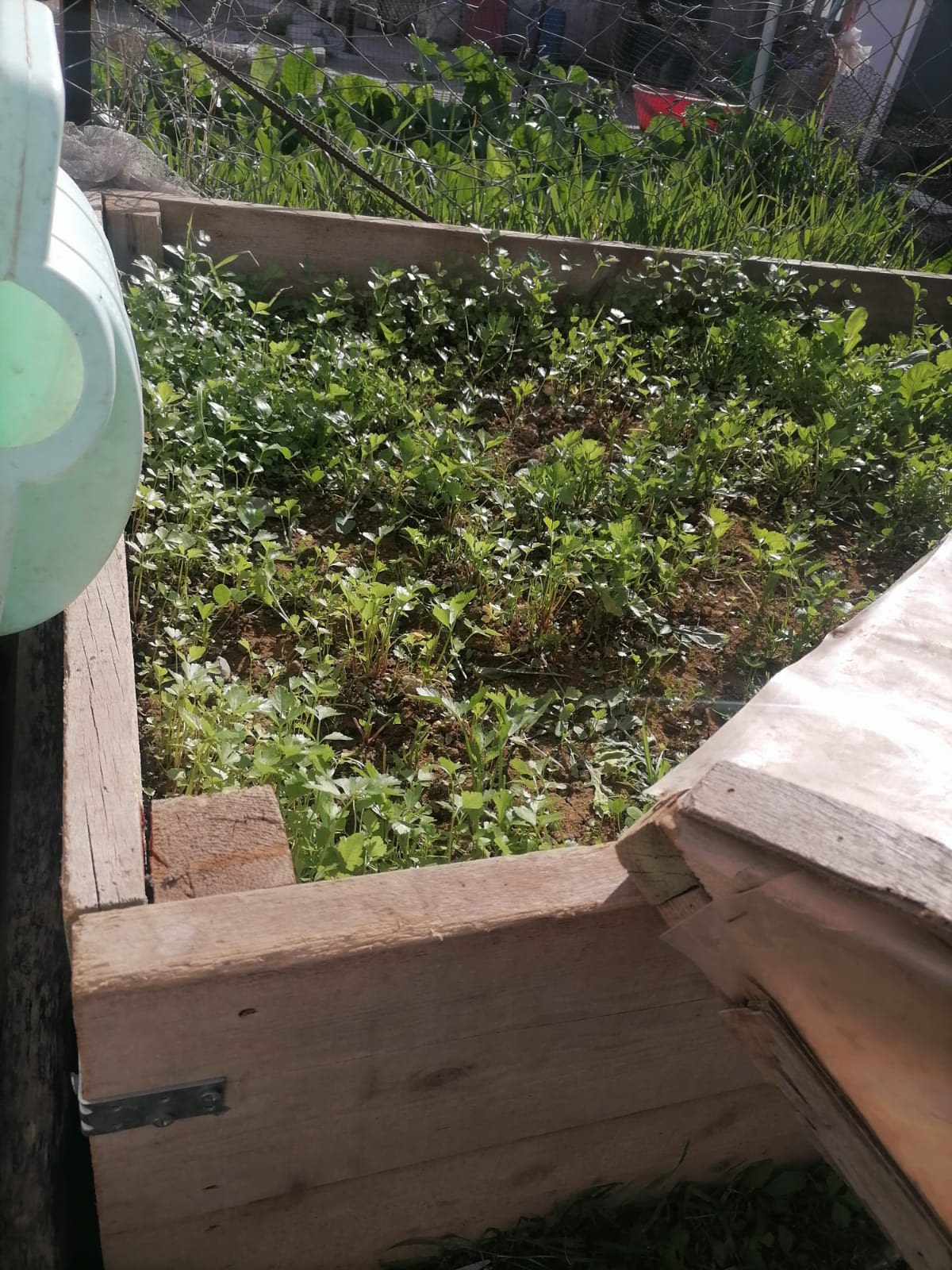

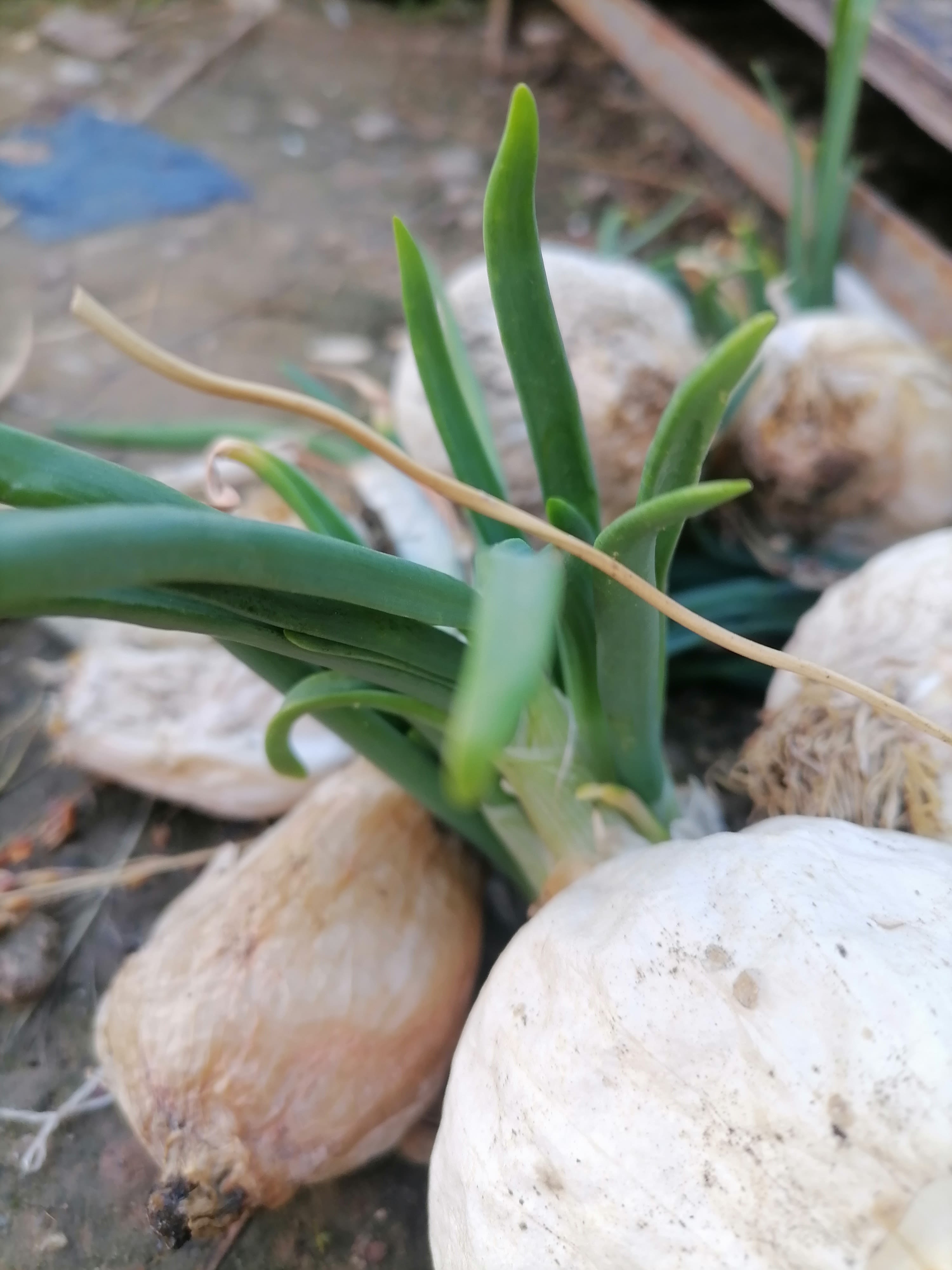
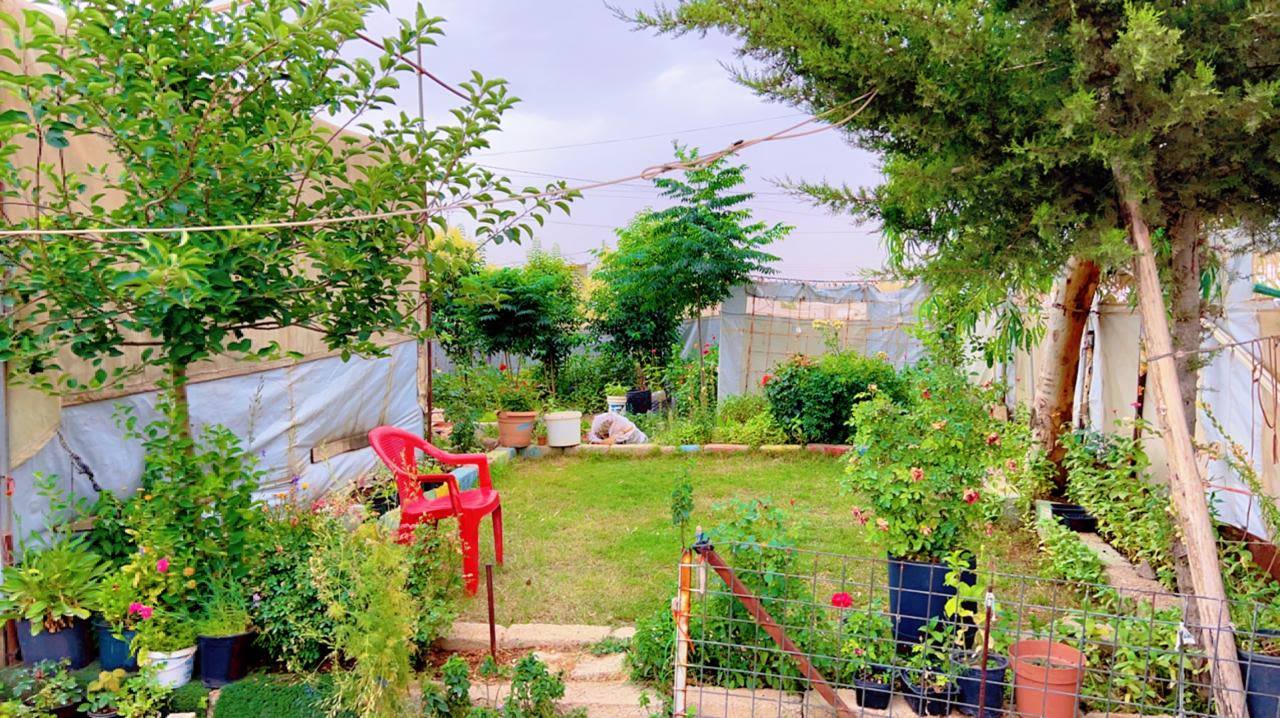
Whenever I see a green environment, I feel comfort. For me, green is life, because we are hugely connected to our environment. Whenever there is a clean and green environment, and there is a lot of grazing plantation, I feel there is more life and there is hope.
Sounds at the camp. What are the sounds of a home?
Sounds at the camp. What are the sounds of a home?



